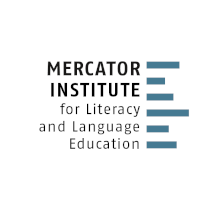Language support at German schools
Many pupils who have no problems communicating in everyday life lack academic language skills. They find it difficult to understand factual texts or to write comprehensible texts themselves. It is clear in everyday school life that the linguistic backgrounds and skills of pupils differ enormously. This linguistic heterogeneity poses a major challenge for teachers.
In the spring of 2012, the IPSOS opinion research institute conducted a representative survey of language support at German schools on behalf of the Mercator Institute. The study looked at how teachers experience linguistic heterogeneity in their classrooms, how they are prepared to deal with this during their training, and what support and assistance they would like to receive.
The results show that the majority of teachers are still not sufficiently prepared to cope with heterogeneous classes nor with the high demand for language support in their classes: 71 percent of teachers reported that they teach pupils with language support needs, while two thirds of those surveyed said that they did not feel sufficiently prepared to provide them with this support. 71 of respondents called for language support and German as a second language to be made a compulsory part of teacher training. 48 percent would like to be supported in their work by specially trained remedial language teachers.
The study was presented during a press conference and symposium in June 2012. The study’s methodological approach was recently adapted to the Austrian context by Professor Sabine Schmölzer-Eibinger.
At a glance
Objective | The study looked at how teachers experience linguistic heterogeneity in their classrooms, how they are prepared to deal with this during their training, and what support and assistance they would like to receive. |
|---|---|
Duration | January 2012 - June 2014 |
